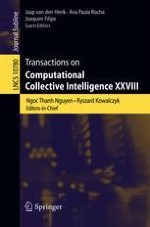2018 | OriginalPaper | Chapter
Two-Stage Reinforcement Learning Algorithm for Quick Cooperation in Repeated Games
Authors : Wataru Fujita, Koichi Moriyama, Ken-ichi Fukui, Masayuki Numao
Published in: Transactions on Computational Collective Intelligence XXVIII
Publisher: Springer International Publishing
Activate our intelligent search to find suitable subject content or patents.
Select sections of text to find matching patents with Artificial Intelligence. powered by
Select sections of text to find additional relevant content using AI-assisted search. powered by
